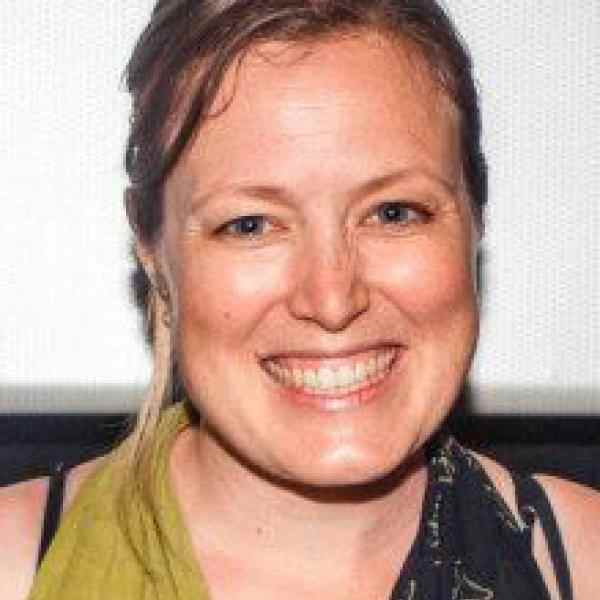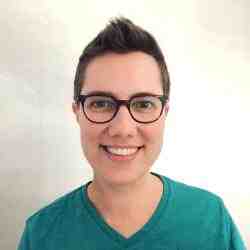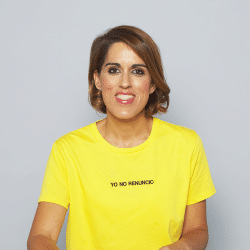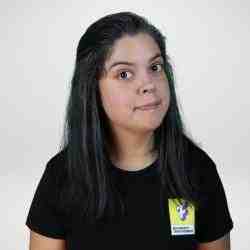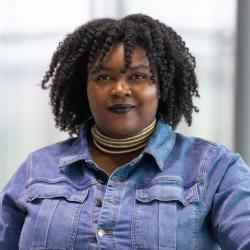Introduction
After 12 years of independence, Timorese people are still living in the ongoing cycles of violence that has become “naturally accepted” as part of their life. The impact of the violence at home, schools, streets, and by the existing institution, legal frameworks and protection systems are still nascent.
Sierra James is developing the approach of breaking the cycle of violence and transforming the lives of children, youth and woman in protection term of spreading the awareness of violence, creating the positive conflict resolution and the trauma healing process.
The New Idea
Touched by the experience of Sierra’s neighbor little children beaten up by their relatives at home, Sierra established the first local initiative movement to end the violence against children, Ba Futuru (For the Future) in 2004. She developed a manual of Transformative Arts and Human Rights Education (TAHRE), which includes creative methods of teaching conflict resolution, violence prevention and human rights awareness. The training modules depicted in the manual use art, dramatic role plays, and other interactive-participatory activities to deliver the issue of human rights as well as to help individuals process their trauma, understanding self and respect the difference in the community and engaging individual to take the role in creating a positive conflict resolution within their own community.
TAHRE is customized for the many segments of the training’s participants. At the beginning Sierra used TAHRE for the orphanage then with the same module, she customized to trained school teacher to used not violence and physical punishment based discipline. Sierra has developed and adapted various materials and methodologies to train not only teachers, but also school directors and parents who impact the lives of children. Ba Futuru also works with youth who became key perpetrators in 2008 in the gang violence that led to murder and arson. She changed the youth from perpetrators to become a mediator for give a positive conflict resolution. The youth equipped with confidence, skill in conflict resolution and the ability to create a positive future for themselves and their communities despite their at-risk background. And to make the movement of breaking the cycle of violence systemically sustain, she trained the existing institution, legal frameworks, and protection system such as the police officer, government official, the administrator, to the parliament members with modified TAHRE module to create the understanding of human rights issue and how to applied the law related to children and woman protection.
In total, Ba Futuru has guided more than 30.000 women, children, youth, community leaders, police, teachers and parents. Ba Futuru works in the areas of gender empowerment, peace building, child protection and conflict transformation in 13 districts of Timor East. TAHRE modules, has been adopted in the school curriculum by Ministry of Education. In 2013, Ba Futuru launched final recommendations for the government to enhance the current protection system, to reinforce the function and responsibility of the village council to refer cases of domestic violence to courts, and to ensure that women, children and vulnerable people receive assistance to access justice through the community Protection Team. Since TAHRE Module is available at the Ba Futuru to download, the module has been used in many post-conflict areas in Latin America, Africa and event in USA by various organizations.
The Problem
Timorese people have suffered through four centuries of Portuguese colonization, three years of Japanese occupation during World War II and then the Indonesian invasion in 1974. During the 24 years of brutal Indonesian occupation, it is estimated that a third of the local population of approximately one million people perished due to a combination of violence, famine and disease. Even after the independence, violence continues being use to resolved everyday problems both inside and outside the home. In 2006, widespread civil unrest impacted hundreds of thousands of people across Timor Leste and leads more than 150.000 people being forced out of their home. Gang related and community level violence carried on until 2009 when the government sealed all youth gang in this country. Additionally, Timor Leste has an extremely young population with approximately more than 60% of the population is younger than 21 years of age.
Many children have been exposed to violence occurring in the streets and targeted at their homes during the occupation and the civil unrest. While at home, as they are living in intensively patriarchal society where traditional customs and practices are upheld, afford women and children substandard rights and respect. Children are beaten as a discipline method in both homes and schools. Unicef and Plan International’s 2006 join report mentioned “two-thirds of children reported teachers beating them with a stick and almost four out of every ten children reported teachers slapping them in the face. Meanwhile Forum Komunikasi Untuk Perempuan Timor Lorosae – Communication Forum for Timorese Women – in 2010 reported that every day in Timor Leste two to three women are seriously injured due to violence inflicted by their boyfriend, husband, father or uncle.
Violence against children and exposure to violence has direct impact on children’s health and psychosocial well-being, and also has been shown to have numerous adverse social, economic and developmental consequences at the individual and community level-based on the UNICEF reviewed in 2014. And if the violence not stops, these children will become part of the perpetrators that preserve the cycle of violence as part of their natural life.
Moreover, the legal and protection systems in Timor-Leste remind underdeveloped and thus women and children who experience violence are faced with systems that do not often respond adequately to their needs or protect them when they suffer ongoing violence. This leads to the re-victimization of women and children.
The Strategy
To break the cycle of violence at school where the teacher used the discipline-violence based by stick and slapping face, Sierra James works first with the teacher. She developed TAHRE - Transformative Arts and Human Rights Education module that has four parts. In part one is talking about Child Rights, why the children have specific rights that relate to their special needs, what protections against abuse and maltreatment the legal framework in Timor Leste provides for children. Part two is about child protection, what is trauma including its causes and effects; the problem of child abuse including its type and potential impacts; how the teachers and adults can help children who are suffering from trauma and/or child abse and how to get professional help. On this chapter, the participants will understand how they can be powerful advocates for the right and wellbeing of children and make clear that the role of teachers and parents is not only to educate but also to protect. The part 3, the teacher will return their attention to the question of what is a discipline means and what it’s most effective methods are. The facilitators and participants will debate the use of physical punishment as discipline question its use and rationale and compare violent and non-violent ways of disciplining children. The final chapter, the teachers will be introduced with various strategies methods and ideas of managing classroom in non-violent, positive, nurturing ways that will help to reduce and prevent misbehavior and promote, reinforce positive behavior among students. They will explore teaching methods strategies that adults can use to manage their own stress and emotions and activities that can be used with students to make the classroom more enjoyable and effective place of learning and development. The manual is for three days training for adults; parents, teachers and school directors.
After the training, the teachers will bring the manual of TAHRE programs that consists fourteen lessons to be applied to their students. Lesson I&II are designed to establish ground rules that will set up a safe environment where the children can process the negative affect of conflict. They include activities about cooperation and communication. Lesson III, IV and V are the introduction to human rights and child’s rights. Lesson VI, VII and VIII are on conflict resolution and lesson IX, X are on overcoming the negative affect of conflict. Lessons XI and XII are deal with the convergence of human rights and conflict resolution. The closing lessons XIII and XIV are look to the future and discuss peaceful interaction, as well as an assessment survey to gauge children’s progress and review what they have learnt over the entirety of the TAHRE program. The manual can be customized to the needs of the participants and can be used over short of long-term period depending on the availability of the facilitators and the children.
To set up the enjoyment and safe environment for children and adults participants, the TAHRE manual uses creative therapeutic techniques. Artistic expression is a useful tool for those who have difficulty discussing their feelings or experiences in words. Art, music and game playing can provide participants with opportunities for enjoyment and achievement in positive, non-competitive situations. Self-expression through the drawing, painting, music and movement activities provided during the implementation of the TAHRE modules, help to provide emotional catharsis and also imparts skills and values that can guide people who are living in difficult circumstances with positive models of behavior. These techniques provide an avenue for people to vent and express negative emotions, allowing for personal transformation, which is a crucial step towards building lasting peace.
Sierra work closely with her local staff to do the out-reach campaign and approaching the school and community leaders to do the workshop and the evaluation afterwards. Her teams followed up with the teacher for examples for several months after the training, with 88 percent surveyed reporting a change in their behavior to using positive discipline and positive behavior management strategies in the classroom. Sierra changed the role of the teacher that traditionally centered at the class, teachers talks, students listen, to become a facilitator who listen to their students, understanding their background of traumatic experiences of conflict and facilitate a way to overcome it and open up their dream for the better future. The class has become enjoyment environment for the student to study.
After the evaluation of TAHRE program that works for the teachers, the same module began customized for the youth in 2007. First Sierra’s local staff approaching the community leaders to identify the “troublemakers” in their community and the leaders has power to send them to the TAHRE training. During the training, youth helped to accept their actions were violent and that they inflicted suffering unto innocent people. Second, they are encouraged to become to give back to their communities. The trainings allow them skills including public speaking and how to mediate for positive conflict resolutions. Today, thirty-nine Peace Promotion team members are equipped with confidence, skills in conflict resolution, and the ability to create a positive future for themselves and their communities, despite their at-risk background. Jose Antonio Carvalho is one of Ba Futuru Peace Promotion staff who used to join the gang, a drunker and making trouble in his community was his daily activities. He was forcibly joined the TAHRE training by his community leader but after months of training back and forward, he realized what he has done was wrong and transformed himself unto a new person. He is now a mediator in his village and helped the community to solve from youth problem to domestic between husband and wife one. The other example is Jose da Costa, murdered 6 persons in his life and now transformed himself unto a Peace Promotion especially for the youth in prison to give them motivation to do well, and build a better and non-violence future.
And for women protection, starting 2011, Ba Futuru established a protection team at the sub-village level. Working together with the women community leaders, Ba Futuru has trained 900 key actors using the TAHRE module, empowering local female leaders as key agents to ensure protection for their communities. These women became paralegals, and successfully referred more than 58 protections cases to the formal system, while also advocating for safeguards during their monthly sub-village meetings. Ba Futuru is also working with church and nun to allowing the church to become the safe house for the children and women who become the victim of domestic violence.
To overcome the absent of the legal and protection system in Timor-Leste, Ba Futuru trained police and policewoman on how to deal with the victim of the domestic violence, and also other officers that related to the issues, assist the government in drafting the law to protect women and children and how to implement the law. Recently, Sierra works closely to the broadcast media to spread the awareness of human rights and stop the violence through the film and music that broadcasted nationally in Timor Leste. Meanwhile she carries on strengthening her program with the government officials as agents of conflict prevention and protection.
The Person
Sierra James was born in an activist family with her three brothers in Seattle United States of America. Her father is a doctor who is constantly travelled to India and Bhutan to voluntary works. Her mother was a nurse and established an animal therapy Clinique to help the patient recover from trauma such as from a bad family situation. One of the animals that she used on her non-profit organization is horses to help the patient open up about their problem and can start the healing process. Through her parents, she learnt to use her heart over the brain in helping others. Sierra younger brother is a carpenter who sometimes came from USA to Timor Leste to help her built facilitation in voluntary based.
In 2004, Sierra came to Timor-Leste for a three-month internship as part of her Applied Conflict Resolution Course in graduate school at Columbia University. She chose Timor-Leste from 10 listed country on the list of internship because of her Australian friend who passionate about Timor-Leste since the loss of her best friend journalist who killed during the conflict in 1999. Timor-Leste is also a right place to apply her study in conflict resolution method as she saw the violence against children happened everywhere in Timor Leste. Children told to do the brunt of the household work to make up for draring off the family’s resources, and they are beaten and sometimes even sexually abused by adults and other children in the family setting.
After the internship work, Sierra paint on her backyard and one of the kids regularly came with bruises. She found out that this boy was living with his aunt and uncle and being beaten often and he was afraid of his life. Sierra went to various organizations locally to get him help but they were unable or unwilling to do anything since he was too scared to process the case in court. Sierra managed to find donation and send the boy to her family in United States for four years. But she realized that kind of help would not work for every kids like him in Timor-Leste. The boy is her reason to start Ba Futuru and decided to stay in Timor-Leste for the longer term to help change the way that children were mistreated. Years later she met a second little girl with the same situation. Sierra managed to find her a boarding house run by nuns and started to work with the government to cover girl’s expenses. The government started to give an attention on placing victims at the church-nun boarding house when other support was not available. This second experience leads Sierra to expand her work at the structural level, develop an advocacy and policy recommendation to the government to ensure child protection system works.
In 2006 when widespread civil happened, Sierra’s house was destroyed, everything was stolen and her dog was shot and ran around the house, leaving blood everywhere before she died. She was stressed, feeling insecure and lack of trust. Her parents forced her to leave the country but three days afterwards she decided to stay. She met her Timorese friends and colleagues who have same experience and she felt that she could not leave them with un-finished job in Ba Futuru. Her parents hardly accept her decision but months after the riot they were came along with her brothers to support her. Sierra married to an English man who is live in Timor Leste for 13 years and together they raise a three years old daughter. Through her works she was nominated for Gwangju Human Right Award by Novel Laureate Dr. Jose Ramos-Hota in 2010 and awarded as Sasakawa Young Leaders Fellow in 2004.
